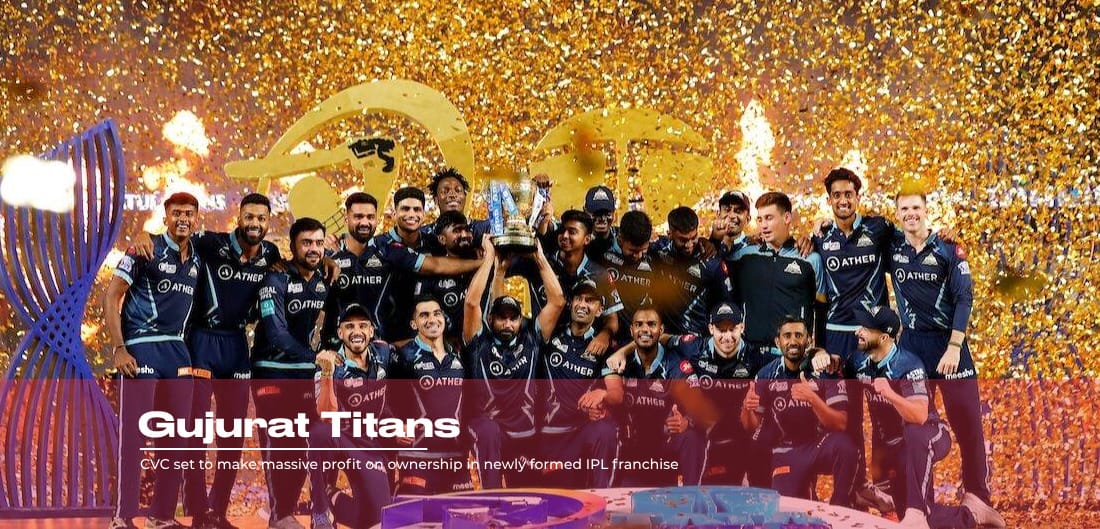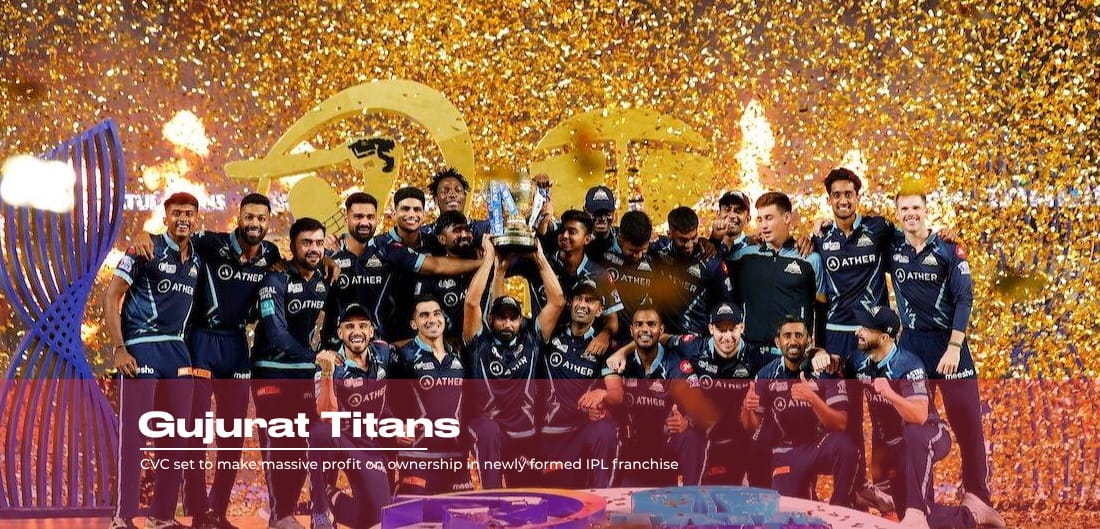- The Long Play
- Posts
- 💰 CVC Capital Partners are Going Public
💰 CVC Capital Partners are Going Public
Soon, you will have the ability to own shares in one of the most dominant sports investors in the world. Today, we explore why this is happening.


Damn.
Michael Johnson told Front Office Sports that an investor pulled out of Grand Slam Track and subsequently caused a very difficult financial situation for the newly formed athletics tournament.
If true, I imagine thats an awful position to be in for MJ as CEO in his first season of operation.
However, I am surprised by the transparency here. Every piece of news that comes out about this competition looks worse and worse optically. An athlete considering joining or a sponsor considering partnering must be so much further away from diving in than they were some months ago. A sad state of affairs.
Alas, today we discuss the intriguing moves of one of the biggest institutional backers of sports in the entire world. CVC Capital are going public. Today we explore the reasons why and the implications of such a move on our beloved sports…

=
CVC Capital Partners are one of Europe’s most powerful private equity firms.
They are perhaps best known for their high-profile ownership of Formula One between 2006 and 2016, a deal that turned $2.1bn into an $8bn exit 😮💨
Today CVC invests in sports rights, building a massive portfolio across rugby, football, tennis, volleyball and cricket.
This week the firm revealed plans to go public on the Amsterdam stock exchange, seeking a valuation of €13bn to €15bn and raising €1.25bn in the process. Of this, €1bn will come from existing shareholders such as GIC (Singapore’s wealth fund), the Kuwait Investment Authority, and Blue Owl Capital. Another €250m will come from the issuance of new shares.
You may be reading this questioning why you should care about any of this. To give you some perspective, its worth knowing just how present CVC are in the world of sport today. See below for their portfolio of investments…
Rugby - Six Nations: CVC own c.14% for £365m of the league, effectively making CVC the “Seventh” Nation
Rugby - Premiership Rugby: CVC own 27% of the league for c.£200m
Rugby - Pro14 / United Rugby Championship: CVC own 28% of the league for $149m
Football - LaLiga: CVC invested €1.994bn for an 8.2% share in a newly created business managing the commercial arm of the league
Football - Ligue 1: CVC invested €1.5bn for 13% of the league’s new rights-holding company
Tennis - Women’s Tennis Association (WTA): CVC paid $150m for a 20% stake in a new commercial subsidiary focused on media rights
Volleyball - Volleyball World (with FIVB): CVC invested $100m for 33% of the league
Cricket: Gujarat Titans (IPL franchise): CVC paid $671m to acquire the new franchise. They recently sold 67% of the team for $600m!
F1: Formula One: Acquired for $2.1bn in 2006, sold for $8bn to Liberty Media in 2016, generating about $5bn profit
Sheesh, the portfolio is extensive. Considering the size and the scale of the company I was surprised to learn they are seeking a public filing. Here are four reasons why they are doing this…
Permanent Capital for Long-Term Plays
Traditional private equity funds have a shelf life of five to seven years. Sports investments however, are proving that that they require patience to materialise. Listing CVC publically provides “evergreen” capital from retail investors removing the pressure to exit quickly
Liquidity for Existing Shareholders
The IPO provides a structured exit route for legacy investors, while allowing CVC’s current leadership to remain invested and aligned. I imagine they were facing pressure to return some profits to older LP’sBrand and Governance Advantages
Going public improves transparency and corporate governance. This is a very boring topic but for leagues and sports clubs, partnering with a listed entity can be seen as safer and more politically acceptable than dealing with a private equity fund that discloses little about its strategy.
Finally a speculative but rather important point:
More Firepower for the Media Rights Race
Sports rights are entering a volatile period. Traditional broadcasters are under pressure, and streaming platforms are cautious about overspending. Leagues need upfront cash to invest in technology, international markets, and production quality. A listed CVC can raise funds through equity or debt far more quickly to finance these needs, then monetise them through refinancing packages like the mooted SportsCo.
These shares will be listed on the Dutch stock exchange. CVC have a long track record of making significant profits on their acquisitions so now they will be publicly available to buy I leave you with a simple question. Would you be interested in buying their shares?
Would you buy shares in CVC when they become available for public consumption? |
I leave you this week with a pretty fascinating interview with John Textor.
Textor is the owner of Eagle Football Holdings. That company has equity stakes in:
Crystal Palace
Lyon
Botafogo
Molenbeek
Even though he is relinquishing his stake in Crystal Palace, it caused a lot of problems for the club.
He pulled up to Talksport last week and was very open and very transparent about Palace’s fight to be reinstated into the Europa League. Rare insight into the world of football club ownership!
See you next week.
Jordan